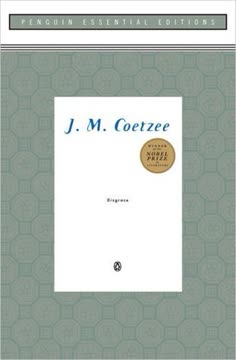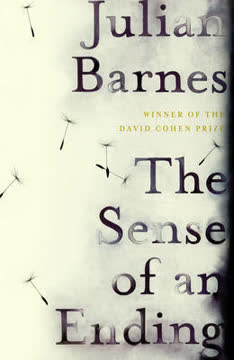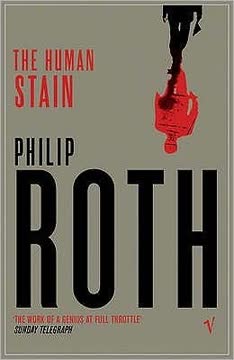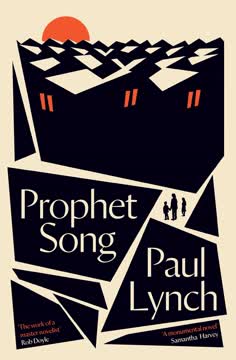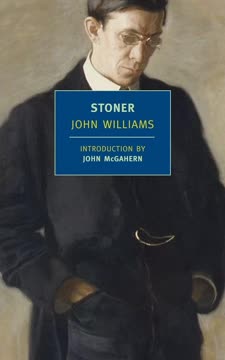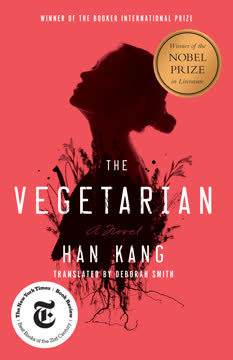Plot Summary
Thursday Rituals
David Lurie, a 52-year-old professor in Cape Town, finds solace in a weekly ritual with Soraya, a prostitute. This arrangement provides him with a semblance of intimacy and control, a stark contrast to his otherwise unremarkable life. However, this routine is disrupted when he sees Soraya with her children, leading to an awkward realization of her double life. This encounter foreshadows the unraveling of David's own life, as his complacency is about to be shattered by a scandal.
Scandal Unfolds
David becomes infatuated with Melanie Isaacs, a student in his class. Their affair is ill-fated, leading to accusations of harassment. The university conducts an inquiry, and David, refusing to show contrition, resigns. This scandal marks the beginning of his fall from grace, as he grapples with the consequences of his actions and the loss of his career.
Lucy's Farm Life
Seeking refuge, David visits his daughter Lucy on her farm in the Eastern Cape. Lucy, independent and resilient, has built a life centered around her smallholding and boarding kennels. David struggles to adapt to this new environment, where Lucy's simple, rural existence contrasts sharply with his own troubled past. Their relationship is tested as they navigate the complexities of their new reality.
A Violent Encounter
The tranquility of Lucy's farm is shattered when they are attacked by three men. David is injured, and Lucy is left traumatized. The incident exposes the vulnerability of their isolated life and the harsh realities of post-apartheid South Africa. This violent encounter forces David to confront his own helplessness and the limits of his ability to protect his daughter.
Aftermath and Silence
In the aftermath of the attack, Lucy retreats into silence, refusing to report the full extent of the crime. David is frustrated by her decision, unable to understand her need for privacy and autonomy. Their relationship becomes strained as they grapple with the emotional and psychological scars left by the attack. Lucy's resilience is tested as she seeks to reclaim her life and sense of security.
Petrus's Proposal
Petrus, Lucy's neighbor and farm assistant, offers to marry Lucy, suggesting a pragmatic alliance for protection. David is appalled by the proposal, viewing it as a form of blackmail. Lucy, however, considers the offer as a means of securing her future and the farm. This proposal highlights the shifting power dynamics in their community and the difficult choices Lucy faces in a changing South Africa.
A New Beginning
As David grapples with his own disgrace and the changes in his life, he finds solace in music, working on an opera about Byron. This creative endeavor becomes a form of redemption, allowing him to process his experiences and find a new sense of purpose. Through this journey, David begins to accept his past and embrace the possibility of a different future, one where he can contribute meaningfully, even in small ways.
Characters
David Lurie
David is a complex character, driven by desire and a need for control. His affair with Melanie leads to his downfall, forcing him to confront his own flaws and the consequences of his actions. Throughout the story, David struggles with his identity and seeks redemption through his relationship with his daughter and his creative pursuits.
Lucy Lurie
Lucy is David's daughter, living a simple life on her farm. She is strong-willed and determined to maintain her independence, even in the face of violence and trauma. Her relationship with David is strained, as she navigates her own path and makes difficult choices about her future.
Melanie Isaacs
Melanie is a student who becomes involved with David, leading to accusations of harassment. Her character represents the complexities of power dynamics and the impact of David's actions on those around him. Melanie's presence in the story forces David to confront his own behavior and its consequences.
Petrus
Petrus is Lucy's neighbor and farm assistant, who offers to marry her for protection. His character embodies the shifting power dynamics in post-apartheid South Africa, as he seeks to secure his own future and that of his family. Petrus's proposal challenges David's understanding of relationships and community.
Soraya
Soraya is a prostitute with whom David has a regular arrangement. Her character represents David's need for control and intimacy, as well as the double lives people lead. Soraya's presence in the story foreshadows the unraveling of David's own life.
Bev Shaw
Bev runs the animal clinic where David volunteers. Her character embodies kindness and resilience, offering David a glimpse of redemption through service. Bev's work with animals provides a contrast to David's own struggles and highlights the theme of compassion.
Ryan
Ryan is Melanie's boyfriend, who confronts David about his behavior. His character represents the younger generation's perspective on power and justice, challenging David's actions and forcing him to confront the impact of his behavior.
Isaacs Family
The Isaacs family, including Melanie's father and sister, play a crucial role in the story. They represent the impact of David's actions on those around him and the broader consequences of his behavior. Their presence forces David to confront the reality of his situation and seek redemption.
Plot Devices
Disgrace and Redemption
The story explores the theme of disgrace and the possibility of redemption. David's fall from grace forces him to confront his own flaws and seek a new sense of purpose. Through his relationships and creative pursuits, he begins to find a path toward redemption.
Power Dynamics
The story examines the complexities of power dynamics, both in personal relationships and within the broader societal context. David's interactions with Melanie, Lucy, and Petrus highlight the shifting power structures in post-apartheid South Africa and the impact of these dynamics on individuals.
Violence and Trauma
The violent attack on Lucy's farm serves as a pivotal moment in the story, exposing the vulnerability of the characters and the harsh realities of their environment. The trauma experienced by Lucy and David forces them to confront their own limitations and seek new ways of coping.
Creative Pursuits
David's work on an opera about Byron becomes a means of processing his experiences and finding redemption. This creative pursuit allows him to explore themes of love, loss, and longing, offering a new sense of purpose and hope for the future.
Analysis
"Disgrace" by J.M. Coetzee delves into the themes of disgrace, redemption, and the complexities of power dynamics in post-apartheid South Africa. Through the character of David Lurie, the story examines the consequences of desire and the possibility of redemption through creative pursuits and personal growth. The violent attack on Lucy's farm serves as a catalyst for change, forcing the characters to confront their own vulnerabilities and seek new ways of coping. The novel highlights the shifting power structures in a changing society and the impact of these dynamics on individuals. Ultimately, "Disgrace" is a powerful exploration of the human condition, offering insights into the complexities of identity, relationships, and the search for meaning in a world marked by violence and change.
Last updated:
FAQ
0. Synopsis & Basic Details
What is Disgrace about?
- A Professor's Downfall: Disgrace follows David Lurie, a 52-year-old professor at a Cape Town university, whose life unravels after he engages in an affair with a student. His refusal to show contrition during a university inquiry leads to his forced resignation and public humiliation.
- Seeking Refuge in Rural South Africa: Stripped of his academic life, David seeks refuge with his estranged daughter, Lucy, on her remote smallholding in the Eastern Cape. Here, he attempts to adapt to a vastly different, more precarious existence.
- Confronting a Changing Nation: The novel explores themes of power, race, and post-apartheid South Africa through David and Lucy's experiences, particularly after a violent attack on Lucy's farm, forcing them to confront their vulnerabilities and the shifting social landscape.
Why should I read Disgrace?
- Masterful Prose & Psychological Depth: J.M. Coetzee's sparse, precise, and unflinching prose creates a deeply unsettling yet compelling reading experience. The novel offers a profound psychological exploration of its protagonist, David Lurie, as he navigates personal and societal collapse.
- Timeless Themes of Power & Humiliation: Beyond its specific South African context, Disgrace delves into universal themes of power dynamics, vulnerability, and the nature of humiliation and redemption. It challenges readers to consider difficult questions about morality, responsibility, and survival.
- Award-Winning Literary Significance: As a Booker Prize winner, Disgrace is recognized for its literary merit and its powerful, often controversial, portrayal of human nature and societal change. It remains a pivotal work in contemporary literature, sparking ongoing critical discussion and analysis.
What is the background of Disgrace?
- Post-Apartheid South Africa Context: The novel is set in the immediate aftermath of apartheid, a period marked by immense social upheaval, land redistribution debates, and a struggle to redefine national identity. This backdrop informs the pervasive sense of insecurity and the shifting power dynamics experienced by the characters.
- Academic and Moral Crisis: The university setting reflects a broader crisis of institutions and values in a changing society. David Lurie's "disgrace" is not just personal but mirrors a societal reckoning with past injustices and the search for new moral frameworks.
- Geographical and Cultural Divide: The narrative highlights the stark contrast between urban Cape Town, representing a more Westernized, intellectual sphere, and the rural Eastern Cape, embodying a raw, often brutal, reality of land, survival, and traditional customs. This geographical shift underscores David's journey from intellectual abstraction to visceral experience.
What are the most memorable quotes in Disgrace?
- "Call no man happy until he is dead.": This quote, a classical allusion from Sophocles' Oedipus Rex, appears early in the novel, foreshadowing David Lurie's impending downfall and the profound unhappiness that will define his subsequent journey, setting a somber, fatalistic tone for the Disgrace analysis.
- "Sooner murder an infant in its cradle than nurse unacted desires.": David's invocation of William Blake's provocative line reveals his internal struggle with unchecked desire and his intellectual justification for his actions, highlighting a key aspect of David Lurie's motivations and the novel's exploration of human impulse.
- "Yes, I agree, it is humiliating. But perhaps that is a good point to start from again. Perhaps that is what I must learn to accept. To start at ground level. With nothing. Not with nothing but. With nothing. No cards, no weapons, no property, no rights, no dignity.": Lucy Lurie's stark articulation of her acceptance of her situation encapsulates a central theme of radical humility and surrender, offering a profound insight into Lucy Lurie's character and the novel's complex understanding of redemption in Disgrace.
What writing style, narrative choices, and literary techniques does J.M. Coetzee use?
- Sparse, Precise, and Unflinching Prose: Coetzee employs a minimalist, almost clinical prose style, characterized by short sentences and a lack of overt emotionalism. This detached narrative voice allows for a stark, unvarnished portrayal of difficult events, forcing the reader to confront the raw reality without sentimental embellishment, a hallmark of Coetzee's literary techniques.
- Third-Person Limited Omniscient Perspective: The story is told primarily from David Lurie's perspective, offering deep insight into his thoughts and internal justifications, yet maintaining a critical distance. This narrative choice allows for an exploration of David Lurie's psychological complexities while subtly exposing his self-deception and moral blind spots.
- Symbolism and Allusion: Coetzee weaves rich layers of symbolism (e.g., animals, fire, music) and intertextual allusions (e.g., Byron, Wordsworth, Greek tragedy) throughout the narrative. These literary devices deepen the thematic resonance, inviting readers to engage in a multi-layered Disgrace analysis that extends beyond the literal plot.
1. Hidden Details & Subtle Connections
What are some minor details that add significant meaning?
- David's "Snake" Totem: Early in the novel, David considers the snake as his sexual totem, describing intercourse as "lengthy, absorbed, but rather abstract, rather dry, even at its hottest." This subtle detail foreshadows his detached, intellectualized approach to sex, which ultimately contributes to his downfall and inability to connect emotionally, a key element in David Lurie's motivations explained.
- The Names Melanie and Desiree: Melanie Isaacs's name is subtly re-accented by David as "Melani: the dark one," while her sister is named Desiree, "the desired one." This linguistic play highlights David's objectification of women and his perception of them through the lens of his own desires, adding a layer of symbolism in Disgrace related to male gaze and power.
- Petrus's Collection of Headgear: Petrus's varied collection of caps, including a "peaked cap with a silver South African Railways and Harbours badge," is a small but telling detail. It subtly hints at his adaptability, his engagement with different facets of the changing South African economy, and his pragmatic, almost chameleon-like ability to navigate new power structures, a nuanced aspect of Petrus's character analysis.
What are some subtle foreshadowing and callbacks?
- David's "Fixed Temperament": David's early assertion that his "temperament is fixed, set" subtly foreshadows his stubborn refusal to genuinely repent or change during the university inquiry. This internal rigidity, despite external pressures, is a recurring theme, illustrating his resistance to true redemption in Disgrace.
- The "Viper" Accusation: Mr. Isaacs's accusation that David has turned his daughter's life into a "nest of vipers" is a powerful callback to David's earlier self-identification with the snake totem. This reinforces the idea that his actions, driven by a detached, predatory desire, have indeed poisoned the lives of others, deepening the themes in Disgrace of consequence and moral decay.
- Lucy's "Price One Has to Pay": Lucy's later statement about the attack being "the price one has to pay for staying on" subtly echoes David's earlier, more abstract philosophical musings about "paying the price" for his own actions. This parallel suggests a shared, albeit differently experienced, understanding of sacrifice and survival in a harsh reality, linking their individual trauma analysis to broader societal conditions.
What are some unexpected character connections?
- David and the Abandoned Bulldog, Katy: David forms an unexpected bond with Katy, an abandoned bulldog bitch at Lucy's kennels. His initial indifference gives way to a quiet affection, culminating in him carrying her to be euthanized. This connection, devoid of human complications, becomes a surprising avenue for David's burgeoning capacity for selfless compassion, a subtle facet of David Lurie's character development.
- David's Shared Humiliation with Animals: David increasingly identifies with the animals he helps euthanize, particularly in their "disgrace of dying" and their lack of "honour." This unexpected empathy connects his personal humiliation to the plight of the voiceless and vulnerable, suggesting a path to redemption in Disgrace through shared suffering rather than intellectual superiority.
- Lucy's Pragmatism and Petrus's Ambition: While seemingly contrasting, Lucy's pragmatic decision to accept Petrus's "protection" and his claim over her land, and Petrus's calculated ambition to expand his holdings, reveal an unexpected alignment in their survival strategies. Their connection highlights the complex, often uncomfortable, alliances forged in the new South Africa, a key aspect of power dynamics in Disgrace.
Who are the most significant supporting characters?
- Bev Shaw, the Priestess of Suffering: Bev Shaw, the animal welfare worker, is crucial as she introduces David to a world of selfless service and compassion. Her willingness to perform the "disgraceful" act of euthanasia, and her quiet strength, profoundly influence David's moral awakening and his eventual path towards humility, making her central to David Lurie's redemption analysis.
- Petrus, the Embodiment of New Power: Petrus, Lucy's farm assistant and neighbor, represents the shifting racial and economic power dynamics in post-apartheid South Africa. His pragmatic ambition, veiled threats, and eventual "proposal" to Lucy force David and Lucy to confront the new realities of land ownership and protection, making him a pivotal figure in themes in Disgrace.
- Melanie Isaacs, the Unwitting Catalyst: Melanie, the student with whom David has an affair, is more than just a plot device; she is the unwitting catalyst for David's entire journey of disgrace. Her silence and her family's actions force David to confront his own moral failings and the societal consequences of his actions, initiating the core conflict of Disgrace explained.
2. Psychological, Emotional, & Relational Analysis
What are some unspoken motivations of the characters?
- David's Quest for Control and Validation: Beyond mere sexual desire, David's affairs, particularly with Soraya and Melanie, are driven by an unspoken need to reassert control and validate his fading magnetism in the face of aging and professional emasculation. His pursuit of Melanie, despite the risks, stems from a desperate attempt to reclaim a sense of potency and relevance, central to David Lurie's motivations.
- Lucy's Silent Resilience and Autonomy: Lucy's refusal to fully report the rape or leave the farm is motivated by an unspoken, fierce desire for autonomy and a deep connection to the land. Her silence is not weakness but a form of self-preservation, a refusal to be defined by victimhood or to allow external forces (including her father) to dictate her life, revealing the depth of Lucy Lurie's character.
- Petrus's Strategic Patience: Petrus's seemingly benign presence and gradual accumulation of land and influence are driven by an unspoken, long-term strategy to secure his family's future in a changing South Africa. His "proposal" to Lucy is not just about marriage but about consolidating power and land, reflecting the complex power dynamics in Disgrace and the quiet ambition of the dispossessed.
What psychological complexities do the characters exhibit?
- David's Intellectualized Detachment vs. Visceral Experience: David Lurie exhibits a profound psychological complexity, initially living in a world of abstract thought and literary analysis, detached from the messy realities of human emotion and consequence. His journey forces him into visceral experiences (the attack, euthanasia), challenging his intellectual defenses and leading to a raw, unmediated emotional awakening, a core aspect of David Lurie's psychological analysis.
- Lucy's Trauma and Pragmatic Surrender: Lucy's psychological state after the attack is marked by a deep, unspoken trauma that manifests as emotional withdrawal and a chilling pragmatism. Her decision to accept her fate and even the possibility of a child from the rape, rather than fight or flee, reveals a complex coping mechanism that prioritizes survival and connection to the land over conventional notions of justice or dignity, central to Lucy Lurie's motivations.
- The Ambiguity of Petrus's Intentions: Petrus embodies the psychological complexity of a figure navigating a post-colonial landscape. His actions are open to multiple interpretations – protector, opportunist, or even complicit. This ambiguity reflects the novel's refusal to offer simple moral judgments, highlighting the nuanced and often unsettling nature of human relationships and power dynamics in Disgrace.
What are the major emotional turning points?
- David's Encounter with Soraya's Family: The moment David sees Soraya with her children in public is a subtle but significant emotional turning point. It shatters his illusion of control and detachment in his sexual life, forcing him to confront the human reality behind his "arrangement" and foreshadowing the loss of control that will define his future, initiating his journey of disgrace analysis.
- The Farm Attack and Lucy's Silence: The violent attack on Lucy's farm is the most dramatic emotional turning point, plunging both David and Lucy into profound trauma. Lucy's subsequent refusal to fully disclose the rape or seek conventional justice marks a deep emotional shift, forcing David to grapple with her autonomy and his own helplessness, a critical moment in their evolving relationship dynamics.
- David's Euthanasia of the Dogs: David's regular participation in the euthanasia of unwanted animals at Bev Shaw's clinic becomes a series of profound emotional turning points. His initial indifference gives way to a raw, uncontrollable grief and empathy, culminating in his final act of "giving up" the crippled dog, signifying a deep, if painful, transformation and a form of redemption in Disgrace.
How do relationship dynamics evolve?
- David and Lucy: From Estrangement to Interdependence: Their relationship evolves from a distant, intellectual father-daughter bond to one of strained interdependence. David, initially seeking refuge, becomes Lucy's caretaker, while Lucy, despite her trauma, asserts her independence and eventually becomes the one who "guides" him, reversing traditional roles and highlighting the complex relationship dynamics in Disgrace.
- David and Women: From Predator to Protector (of sorts): David's relationships with women shift dramatically. From his detached, transactional encounters with Soraya and his predatory pursuit of Melanie, he moves towards a more compassionate, albeit still flawed, connection with Bev Shaw. His ultimate role as a "dog-man" who cares for the vulnerable and "saves the honour of corpses" suggests a profound, if unconventional, evolution in his capacity for care, a key aspect of David Lurie's character development.
- Lucy and Petrus: A Pragmatic Alliance: The dynamic between Lucy and Petrus transforms from employer-employee to a complex, almost feudal, alliance. Lucy's decision to accept Petrus's "protection" and effectively cede control of her land, while maintaining her house, signifies a pragmatic adaptation to the new power dynamics in Disgrace. This relationship, born of necessity, challenges conventional notions of marriage and ownership.
4. Interpretation & Debate
Which parts of the story remain ambiguous or open-ended?
- The Full Extent of Lucy's Trauma: While the novel strongly implies Lucy was raped, it never explicitly details the act from her perspective, leaving the precise nature and full psychological impact of her trauma ambiguous. This narrative choice forces readers to confront the unspeakable and debate the implications of her silence and subsequent choices, central to Lucy Lurie's motivations explained.
- Petrus's Complicity in the Attack: The degree of Petrus's involvement or foreknowledge of the farm attack remains deliberately ambiguous. David suspects his complicity, but Petrus denies it, offering only vague assurances of "protection." This ambiguity fuels debate about the shifting loyalties and moral compromises in post-apartheid South Africa, a key element of power dynamics in Disgrace.
- The Nature of David's "Redemption": The novel's ending leaves David's "redemption" open to interpretation. Is his humble service to dead animals a genuine spiritual transformation, a form of penance, or merely a resignation to a diminished existence? The ambiguity invites readers to debate the meaning of redemption in Disgrace and whether true change is possible for a man like David.
What are some debatable, controversial scenes or moments in Disgrace?
- David's Affair with Melanie Isaacs: The depiction of David's affair with his student, Melanie, is highly controversial. His intellectual justifications for his actions ("beauty's rose," "rights of desire") and the ambiguous nature of Melanie's consent provoke intense debate about power imbalances, sexual ethics, and the nature of victimhood, making it a central point of Disgrace analysis.
- Lucy's Refusal to Report the Rape: Lucy's decision not to report the full extent of the farm attack, particularly the rape, is a deeply debated moment. Readers question whether this is an act of strength, a pragmatic survival strategy in a lawless land, or a tragic surrender to humiliation. This scene challenges conventional notions of justice and victim agency, fueling discussions on violence and trauma in Disgrace.
- Petrus's "Proposal" to Lucy: Petrus's offer to "marry" Lucy, framed as "protection" in exchange for land and the child, is highly controversial. It raises questions about forced marriage, land ownership, and the re-establishment of patriarchal power structures in post-apartheid South Africa, prompting heated discussions about themes in Disgrace and the future of the nation.
Disgrace Ending Explained: How It Ends & What It Means
- Acceptance of Humiliation and Diminishment: The Disgrace ending explained sees David Lurie fully embracing a life of humility and service, particularly in his role as a "dog-man" at Bev Shaw's animal clinic. He regularly assists in the euthanasia of unwanted animals, a task he finds profoundly distressing but accepts as his "duty." This signifies his acceptance of a diminished, unheroic existence, stripped of intellectual pride and worldly ambition.
- The Act of "Giving Up": The novel culminates with David carrying the crippled young dog, his favorite, to be euthanized, an act he describes as "giving him up." This final, deeply empathetic act of surrender, devoid of self-interest or intellectual justification, represents a profound shift from his earlier self-serving desires. It suggests a form of redemption in Disgrace found not in grand gestures but in humble, compassionate service to the most vulnerable.
- Lucy's Pragmatic Survival and David's Role as "Joseph": Lucy remains on her farm, pregnant with the child of one of her attackers, having made a pragmatic alliance with Petrus. David accepts her decision, recognizing his inability to "guide" her. His final role is akin to a "Joseph," a non-biological father figure, accepting a future where his lineage is not his own, and his contribution is one of quiet, supportive presence, highlighting the novel's complex exploration of family dynamics and survival in post-apartheid South Africa.
Review Summary
Disgrace is a powerful and controversial novel that explores themes of race, gender, and morality in post-apartheid South Africa. The story follows David Lurie, a professor who falls from grace after an affair with a student. Readers praise Coetzee's masterful writing and complex character development, while grappling with the book's uncomfortable themes. Many find the novel disturbing yet thought-provoking, highlighting issues of power, violence, and redemption. The book's unflinching portrayal of difficult subjects and its exploration of human nature leaves a lasting impact on readers.
Similar Books
Download PDF
Download EPUB
.epub digital book format is ideal for reading ebooks on phones, tablets, and e-readers.
